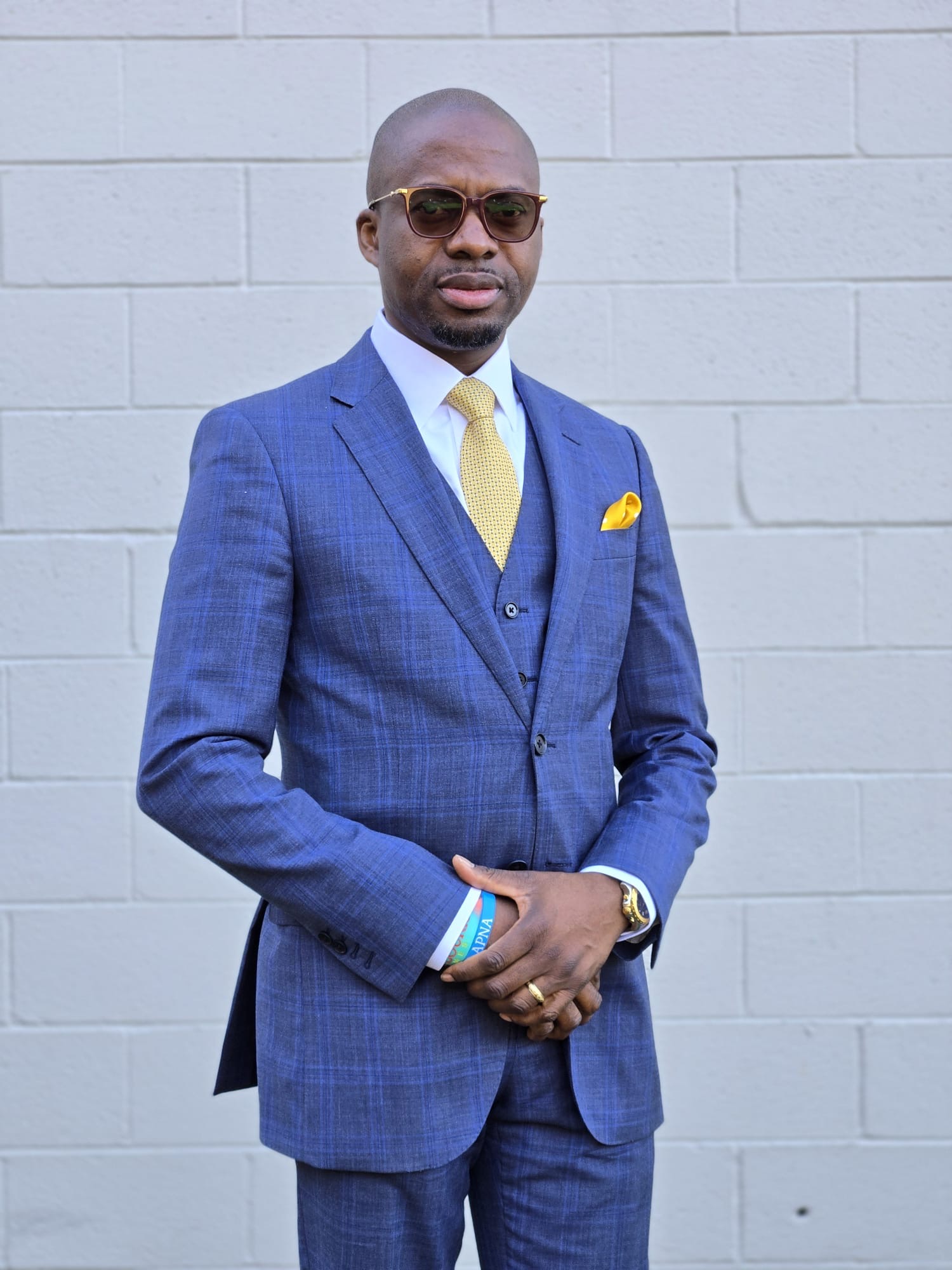Titus Oluwalade, a Master of Science in Nursing (MSN) student at the George Washington University School of Nursing, is on a mission to revolutionize healthcare through leadership, policy, and global advocacy. Currently enrolled in the Nursing Leadership and Management track, Oluwalade expects to graduate in the summer of 2025—and he is already making a powerful impact both locally and internationally.
Living in Laurel, Maryland, and working as a nurse supervisor in Washington, D.C., has afforded Oluwalade a beneficial perspective. "Being in the nation’s capital has deepened my awareness of the critical intersection between healthcare delivery and policy—an area I am eager to contribute to through leadership and advocacy," he said.
Oluwalade’s work in clinical and organizational practice has given him the opportunity to employ the strategic planning and team dynamics principles he has learned at GW Nursing to foster stronger collaboration within his hospital unit. Beyond the local impact, he also brings his leadership skills to the international stage as executive director of Health for Nigeria (HFN), where he oversees nurse-led school health initiatives in underserved communities. His work with HFN will soon gain global recognition when he presents at the International Council of Nurses (ICN) Congress 2025 in Helsinki, Finland. His presentation, titled “Empowering Rural Adolescent Health through School-Based Clinics: The Nurse A School (NAS) Program in Nigeria,” highlights the critical role nurses play in advancing community health.
Choosing the Leadership and Management track at GW was a natural fit for Oluwalade, who has long recognized the transformative power of strong nursing leadership. "I’m passionate about creating supportive work environments, mentoring future nurse leaders, and driving system-level change," he explained. With plans to pursue a Doctor of Nursing Practice (DNP) in Health Policy after his master’s program, Oluwalade’s vision extends far beyond the bedside—he aims to influence healthcare reform at the policy level.
"The program has given me the tools and platform to explore topics like health equity, workforce development, and cultural dynamics in nursing leadership," Oluwalade said. He is currently working on a project addressing lateral workplace violence, an issue he feels strongly about tackling through organizational change and policy reform.
Oluwalade’s GW education is not just helping him reach his goals—it’s laying the foundation for a long-term mission centered on service, equity, and innovation. "My education at GW is shaping me into a policy-informed nurse leader who is equipped to drive innovation across systems," he said. Through a future in health policy, he envisions expanding his advocacy work and contributing to legislation that improves the nursing workforce and enhances patient care delivery.
Beyond his professional ambitions, Oluwalade is passionate about expanding access to healthcare, building resilient nursing teams, and using leadership as a force for equity and transformation. He is deeply committed to mentoring the next generation of nurse leaders, equipping them to navigate both clinical and policy environments with confidence and compassion. “Jesus has been good to me,” said Oluwalade. “And my Christian values have played a significant role in bringing me this far. So I want to pay it forward in any way I can.”
For Oluwalade, revolutionizing healthcare means investing in nursing leadership and building systems that empower nurses to be change agents. "Through my work with HFN, my education at GW, and my future in health policy, I aim to create sustainable models of care that are equitable, nurse-led, and responsive to community needs," he said.
As he looks to the future, Oluwalade believes that interdisciplinary collaboration, culturally competent leadership, and bold policy action are the keys to creating a healthcare system that serves everyone more effectively. With a clear vision, an unshakable commitment to equity, and a strong educational and foundation, Titus Oluwalade is poised to be a driving force in shaping the future of healthcare—one community, one policy, and one nurse leader at a time.


